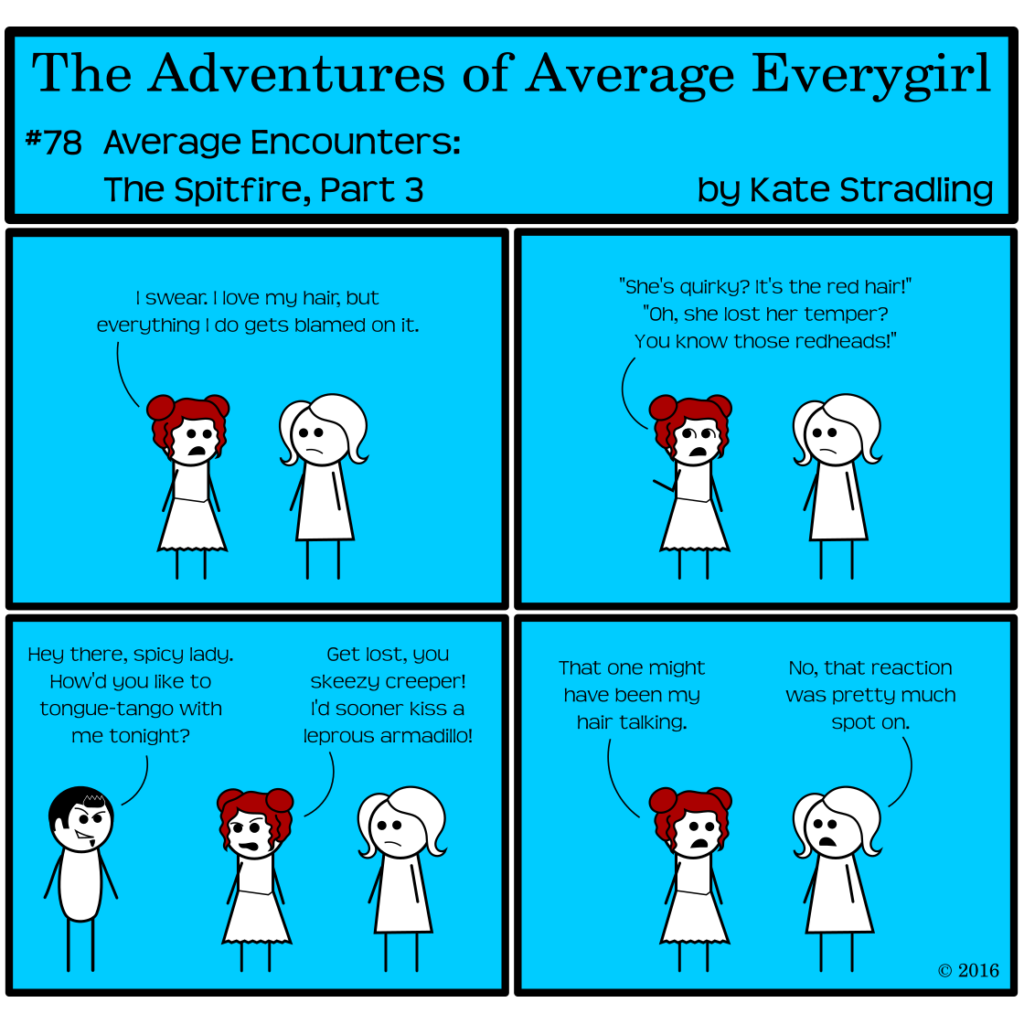
The social narrative for redheads is a double-edged sword, with the lovable, quirky, positive image juxtaposed against a much darker perception.
In ages past, red hair had a direct association with witchcraft and the occult. It served as evidence of Satanic ties, a color favored by the devil himself. Witch hunters kept watch for fiery locks, considering them an outward sign of evil hearts.
Geographical Nuances
I heard, once upon a time, that for England at least, this came because redheads were prevalent among the Celtic tribes: the Irish, Scottish, Cornish, and Welsh. The Irish in particular, removed on their island and resistant to British rule, maintained close ties with their pagan folklore and roots. This caused an “other-izing” effect where the Brits perceived them as more attuned to supernatural elements.
The belief that red hair marked a witch or other supernatural being was not restricted only to the British Isles, however, but cropped up across Northern Europe. This negative narrative echoes into present day, where red hair can yet signal a social outlier.
The “redheaded stepchild” motif plays into this narrative, as does the bullying that some redheads suffer as a result of their hair color. “Better dead than red,” the saying goes, and many a redhead has sloughed it off as best they could.
Infamously, South Park dedicated an episode to “gingers,” which spawned the ongoing meme that redheads have no souls. It also inspired a “Kick-a-Ginger Day” observance among some over-zealous middle-schoolers.
And, of course, the Internet is rife with such negative stereotypes.
Always the Social Pariah
Redheads are the perpetual outcast, the default whipping boy for the rest of society—or society of European descent, at least. I would say it’s astonishing that a simple physical characteristic could spawn such irrational patterns of thought and behavior, but this seems to be the general modus operandi for much of the human race. Redheads are not the first, nor are they the most abused on the spectrum of victims.
Ginger Pride, too, is alive and well. (As it should be, because we’re awesome.)
Write with Care
For authors who create redheaded characters, whether to fill the role of protagonist or antagonist, the many social concerns of redheads must come into play, at least in the character development stage. Does the society of your story view red hair as a positive feature? A negative one? Is it noted at all? How will that perception shape your character’s worldview? (And believe me, it will.)
Most importantly, is the red hair simply one of your character’s features or is it a full-blown personality trait?
If it’s the latter, you’re playing into a stereotype. Proceed with caution.